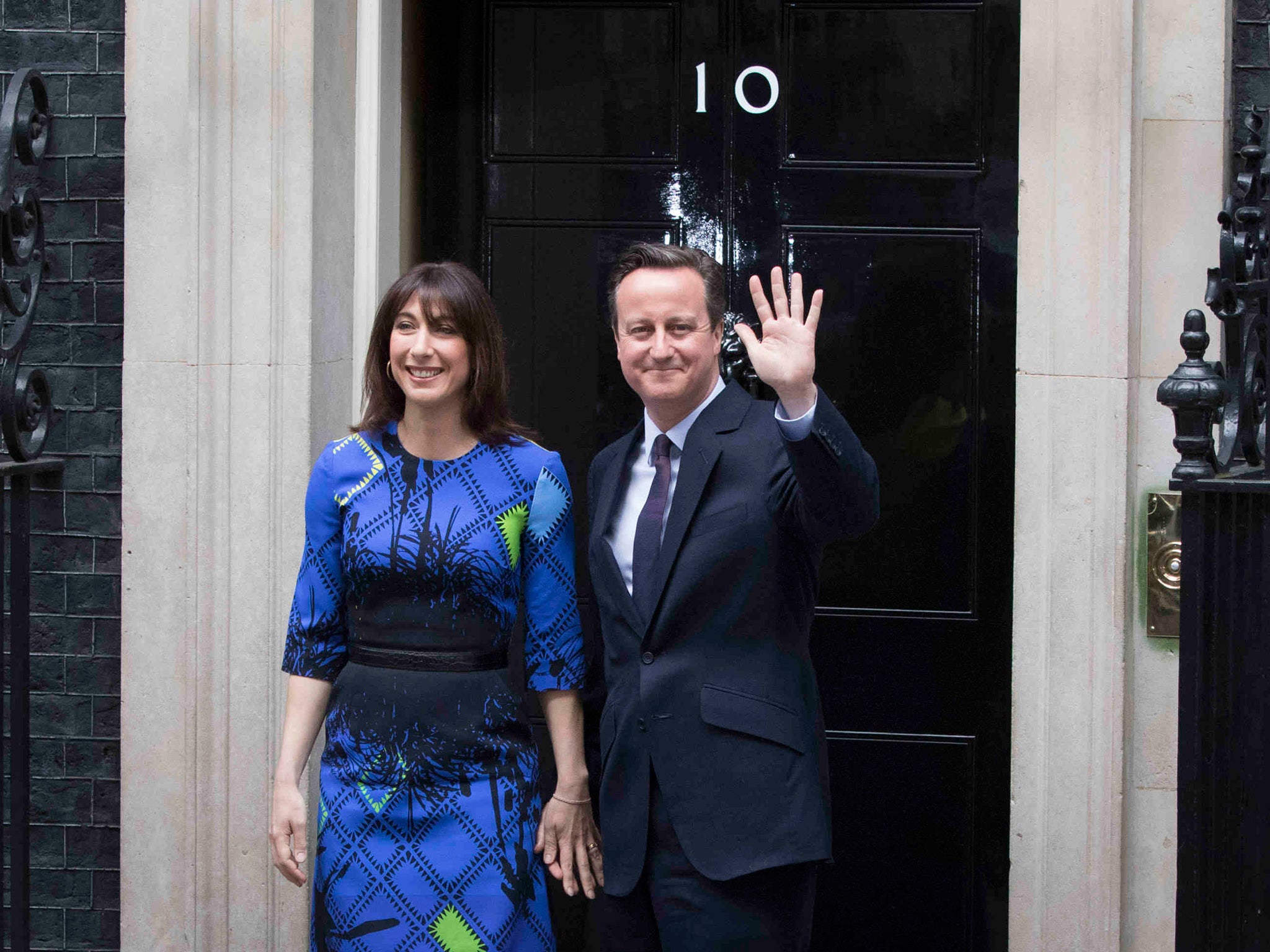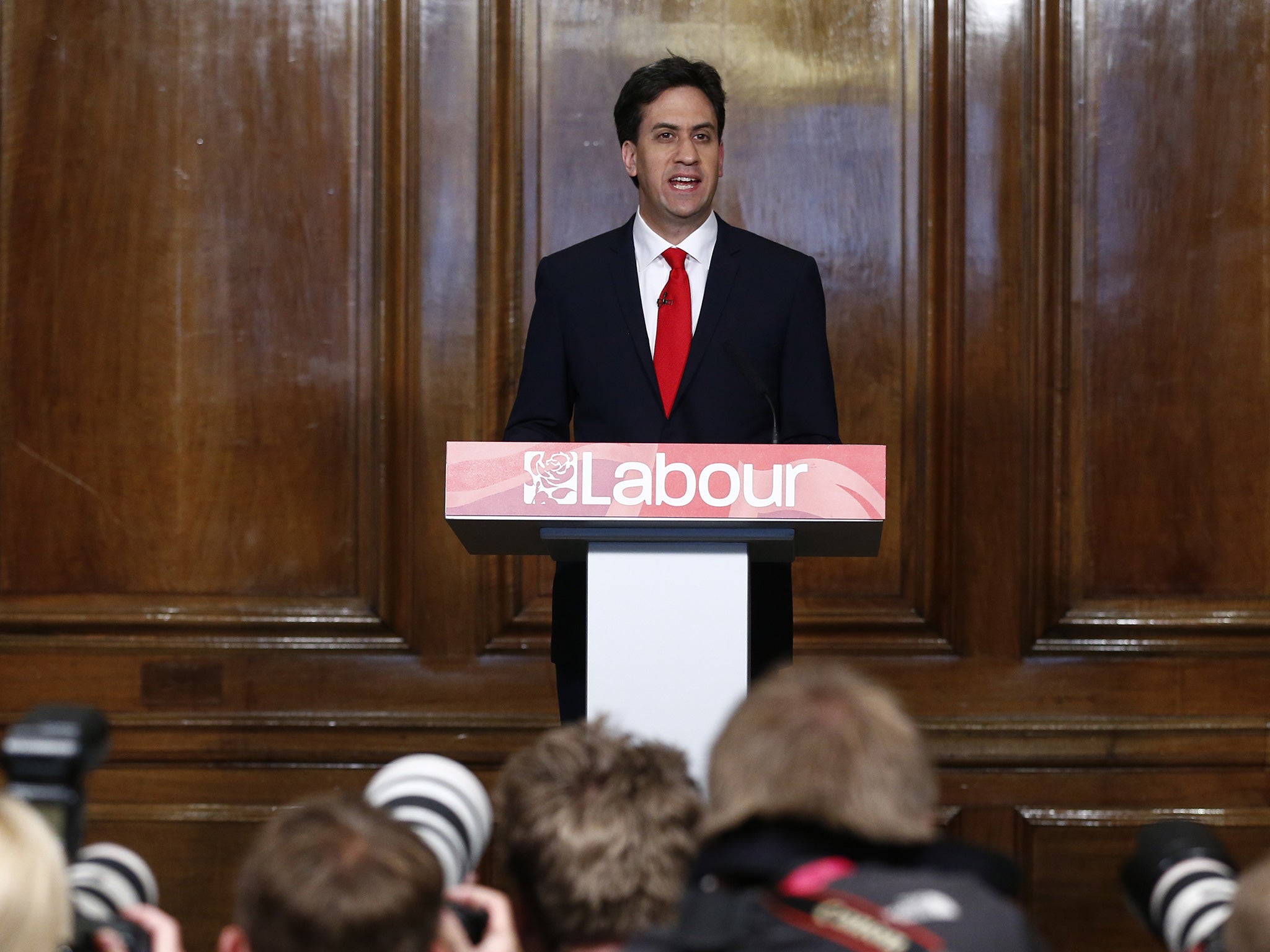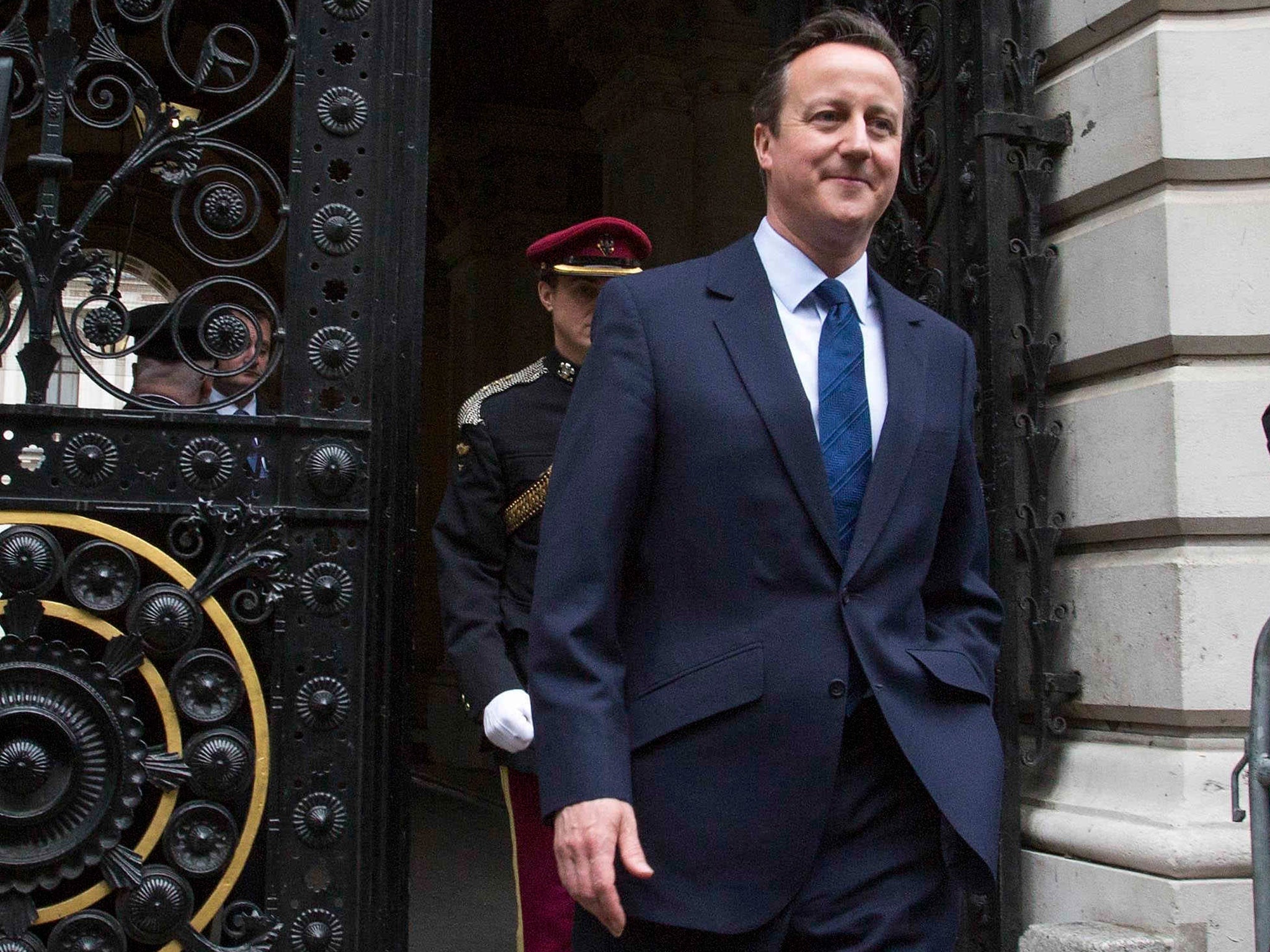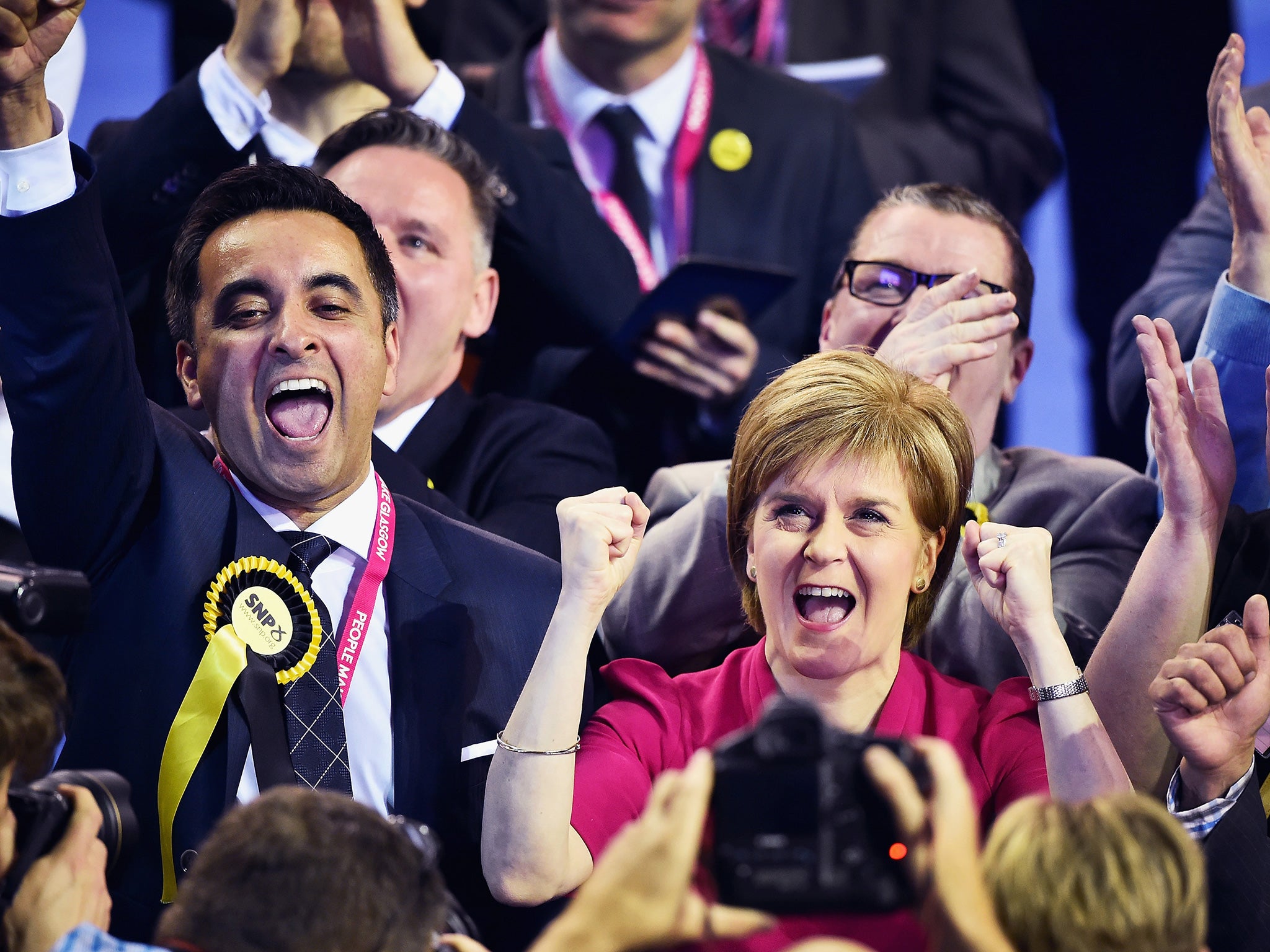Election results: Triumphant Tories leave Britain’s liberal left in shock
Dramatic election result gives the Conservatives a small majority – and raises fears of a sea change in the UK’s political culture

Your support helps us to tell the story
From reproductive rights to climate change to Big Tech, The Independent is on the ground when the story is developing. Whether it's investigating the financials of Elon Musk's pro-Trump PAC or producing our latest documentary, 'The A Word', which shines a light on the American women fighting for reproductive rights, we know how important it is to parse out the facts from the messaging.
At such a critical moment in US history, we need reporters on the ground. Your donation allows us to keep sending journalists to speak to both sides of the story.
The Independent is trusted by Americans across the entire political spectrum. And unlike many other quality news outlets, we choose not to lock Americans out of our reporting and analysis with paywalls. We believe quality journalism should be available to everyone, paid for by those who can afford it.
Your support makes all the difference.David Cameron promised to govern as a “One Nation” Prime Minister amid fears that his unexpected election triumph over Labour and the Liberal Democrats would allow the Conservatives to return to a Thatcherite agenda.
The Tories defied the opinion pollsters’ predictions of a hung parliament by winning an overall majority of 12. On a dramatic day, three defeated party leaders resigned in the space of just 52 minutes. Nigel Farage stood down as Ukip leader after failing to win Thanet South – but did not rule out standing for the leadership again.
Then Nick Clegg quit after seeing the Liberal Democrats’ 57 MPs reduced to just eight, a bloody price to pay for five years in coalition with the Tories. Then Ed Miliband joined the ex-leaders’ club after Labour suffered a humiliating defeat – losing 26 MPs to see its ranks reduced to 232, almost 100 short the Tories’ 321.
While the two progressive parties were crushed in England, the Scottish National Party won a stunning victory north of the border – seizing 56 of the 59 seats and raising fears of a “Divided Kingdom.”
Admitting the Lib Dems had suffered “catastrophic losses,” Mr Clegg said: "One thing it seems to me is clear: liberalism here, as well as across Europe, is not faring well against the politics of fear. Years of remorseless economic and social hardship following the crash in 2008 and the grinding insecurities of globalisation have led people to reach for new certainties - the politics of identity, of nationalism, of us versus them, is now on the rise.
"It is clear that in constituency after constituency north of the border, the beguiling appeal of Scottish nationalism has swept all before it, and south of the border a fear of what that means for the United Kingdom has strengthened English conservatism too.”
The former Deputy Prime Minister warned: “This now brings our country to a very perilous point in our history where grievance and fear combine to drive our different communities apart. This is a very dark hour for our party but we cannot and will not allow decent liberal values to be extinguished overnight.”
Mr Miliband took “absolute and total responsibility" for Labour’s disaster, apologising to senior party figures who lost their seats – including Ed Balls, the shadow Chancellor; Douglas Alexander, the election campaign chief and shadow Foreign Secretary and Jim Murphy, leader of Scottish Labour. Mr Miliband said: "Britain needs a strong Labour Party, Britain needs a Labour Party that can rebuild after this debate so we can have a government that stands up for working people again.”

Mr Cameron, who passed the winning post for an overall majority while he was at Buckingham Palace for an audience with the Queen, hailed the Tories’ triumph as “the sweetest victory of all.” He promised to press ahead with the promised further devolution to Scotland as fast as possible. "As we conduct this vital work we must ensure that we bring our country together. We will govern as a party of One Nation, one United Kingdom," he said. “It means bringing together the different nations of our United Kingdom. I have always believed in governing with respect.”
Speaking outside Number 10, the Prime Minister said: “I truly believe we’re on the brink of something special in our country, we can make Britain a place where a good life is in reach for everyone who is willing to work and do the right thing. …I’m convinced that if we draw on all of this, then we can take these islands, with our proud history, and build an even prouder future. Together, we can make Great Britain greater still."
Opposition MPs expressed fears that the Tories, freed from the restraining influence of the Lib Dems during the Coalition, would press ahead with a mission to shrink the size of the state. “Without meaning to do it, people have voted back the nasty party,” said one Labour source. During the campaign, the Tories rejected that claim they wanted to cut spending for ideological reasons but will now have the Commons votes to push through £12bn of welfare cuts -- £10bn of which they have not yet identified.

In a foretaste of the controversy to come, only hours after the Conservatives’ majority was confirmed, the Department for Work and Pensions moved further to examine cutting a scheme to help disabled people into work. A policy document originally quietly announced in March suggests capping the £108m Access to Work fund. An impact assessment of the policy was released on the day the general election results.
The first option outlined by civil servants is “to set a cap on the maximum value of support per user”. The overall spend on Access to Work in 2013/14 was £108m, covering 35,540 people.
Labour’s inquest into its crushing defeat will focus on its collapse in its Scottish heartland. Labour officials admitted the Tories’ repeated warnings that a Miliband government would rely on the Commons votes of the SNP had wrecked its chances in England. One said: “The Tories’ campaign was built on a lie. They won, but fought dirty. Voters were scared off. They thought we were too much of a risk.”
However, Blairites said the reasons for Labour’s collapse went much deeper than the Tories’ playing of the “SNP card.” They blamed Mr Miliband for defining himself as “not New Labour”, vacating the political centre ground and allowing the Tories to blame the deficit on overspending by the previous Labour government. His resignation has already sparked an intense debate over Labour’s future direction.
Lord (John) Hutton of Furness, a Blairite former Cabinet minister, said: “We're back to where we were 30 years ago. Few of us after 1990s success [under Tony Blair] thought we'd ever be in this position again. There's limited appetite for the old-school socialist menu which we had on offer.”

The SNP hoovered up 50 per cent of the votes cast in Scotland, compared to just 20 per cent at the 2010 election. Labour saw its share of the vote fall to 24 per cent north of the border, with the Conservatives on just under 15 and the Lib Dems on 7.5 per cent.
Nicola Sturgeon, the SNP leader, dismissed Labour’s claims that an “unholy alliance” between her party and the Tories had handed Mr Cameron a second term in Downing Street.
She said: “It was Labour's job to beat the Conservatives in England, and Labour hasn't come close to doing that, even if Labour had won all of the seats they held in Scotland they still wouldn't have beaten the Conservatives.” She said she would warn Mr Cameron when they held talks shortly that “Scotland's voice has to be heard,” adding: “The Government cannot ignore what happened in Scotland last night. There was an overwhelming vote for Scotland's voice to be heard, for an end to continued austerity, and those issues which we put so firmly at the heart of the campaign we now intend to put firmly at the heart of the Westminster agenda.”
Mr Cameron, who can appoint 24 more Tory ministers now that he no longer needs a coalition with the Lib Dems, began the task of forming his new government. He reappointed four senior Cabinet ministers to their posts – George Osborne as Chancellor; Theresa May as Home Secretary; Philip Hammond as Foreign Secretary and Michael Fallon as Defence Secretary. Changes to other Cabinet posts will be announced on 11 May.
Nick Clegg’s words
We will never know how many lives we changed for the better because we had the courage to step up at a time of crisis. But we have done something that cannot be undone because there can be no doubt that we leave government with Britain a far stronger, fairer, greener, and more liberal country than it was five years ago.
However unforgiving the judgement has been at the ballot box, I believe the history books will judge our party kindly…
Liberalism, here as well as across Europe, is not faring well against the politics of fear. Years of remorseless economic and social hardship … and the grinding insecurities of globalisation have led people to reach for new certainties: the politics of identity, of nationalism, of us vs them is now on the rise… The cruellest irony of all is that it is exactly at this time that British liberalism, that fine, noble tradition that believes we are stronger together and weaker apart, is needed now more than ever before.
Fear and grievance have won, liberalism has lost. But it is more precious than ever and we must keep fighting for it.
Join our commenting forum
Join thought-provoking conversations, follow other Independent readers and see their replies
0Comments